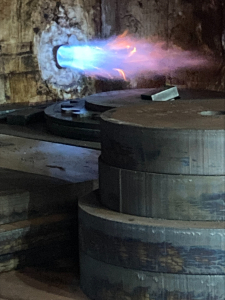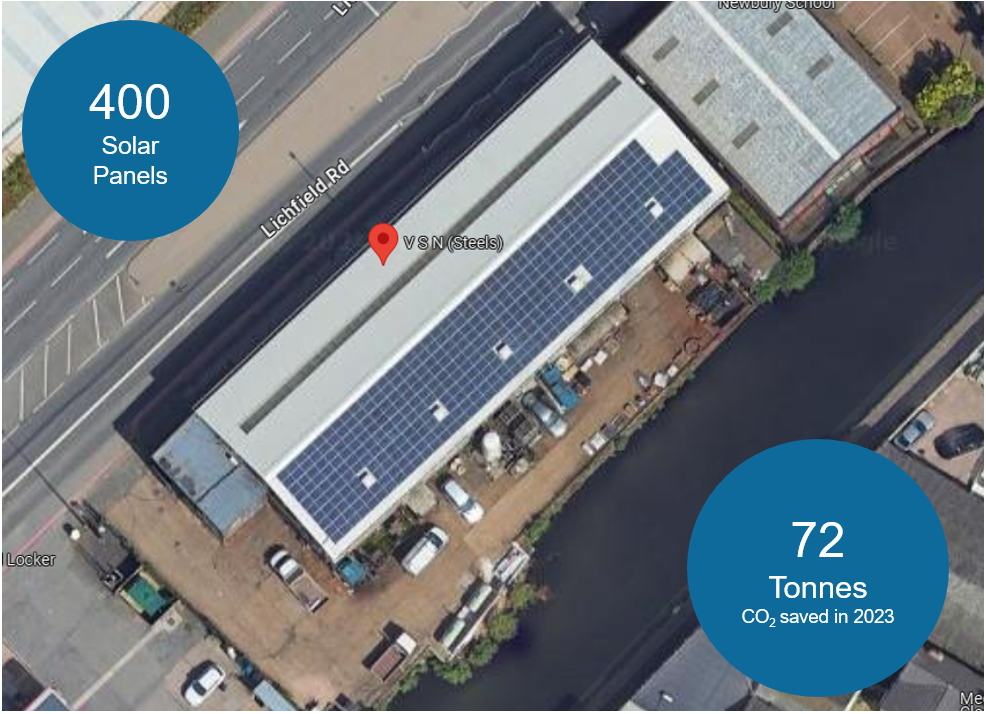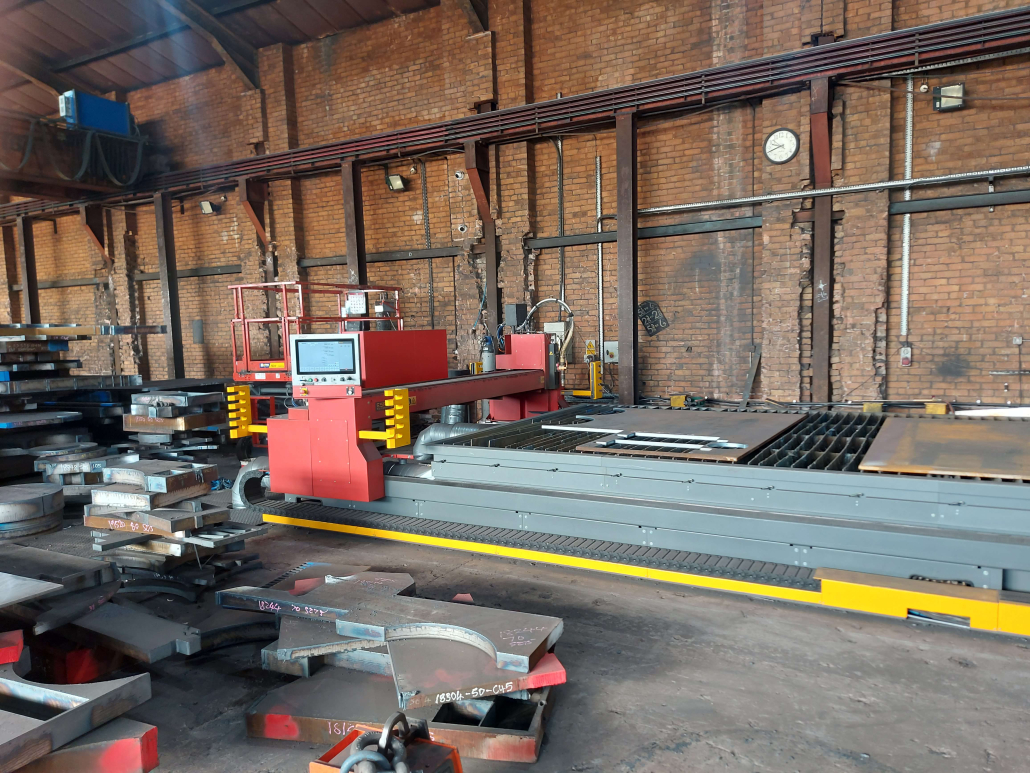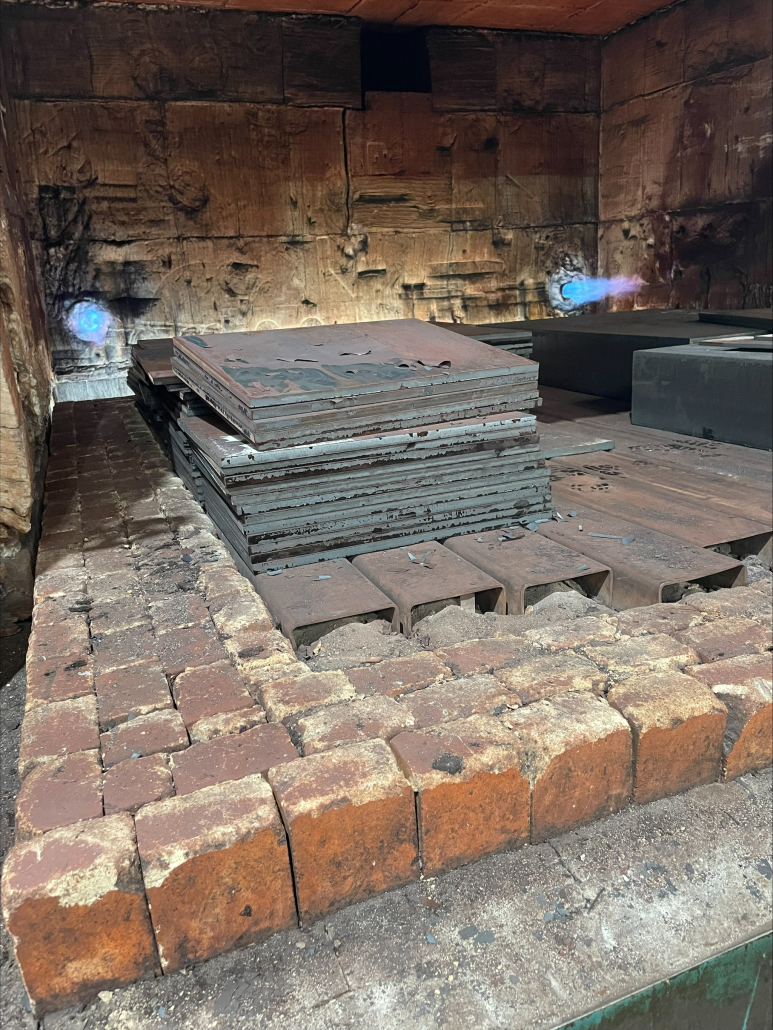The UK Government has set a target for the steel industry to produce net 0% carbon emissions by 2050.
It’s going to be a long road in an industry as carbon-heavy as steel and government investment is sorely needed to make this a reality across the board. As steel processors, we are finding opportunities to become more energy efficient and reduce our emissions. Sustainable steel processing is closer with every green investment, and we are proud to share our ongoing work towards decarbonised steel.
Steps We’ve Taken Towards Decarbonisation and Sustainability
Sustainable steel milling requires change on many fronts: reducing emissions, effective waste management and reducing air pollution.
Carbon dioxide (CO2) is the main focus, as it is released in huge quantities through fossil fuel combustion, creating a ‘greenhouse’ effect in the atmosphere and raising the overall global temperature. Other greenhouse gasses include Methane (CH4) and Nitrous Oxide (N2O), which also contribute to air pollution.
Solar Panels
With funding from Made Smarter UK, we’ve installed 400 solar panels on our factory roof in February 2023, providing 85kW electricity per hour.
When fossil fuels are used to generate 1 MegaWatt (MW) of electricity, 1 tonne of CO2 is released into the atmosphere. In the year since the solar panels were installed, they’ve generated 72 Megawatts (MW) of power, saving 72 tonnes of CO2 emissions.
While solar energy reduces our contribution to global heating, it also saves our business money. The tools we use include electromagnets, plasma cutting beds and steel grinders, which all use a lot of power. Like many businesses, our electricity bills skyrocketed with the price rises in 2021.
However, our bills are much lower since installing the solar panels. We have continued using these energy-heavy tools for our steel processing, and 30-100% of our daily electricity is produced on-site.
At peak operation, such as during Lumsden grinding, we use 220kWh of power. On these days, solar power covers ⅓ of our energy usage. On some days during the week, we can go completely “off-grid”, using only our solar energy to operate.
We’ve been able to install energy monitoring to keep track of our overall reductions and see the benefit of solar directly.
Upgraded Machinery and Electrification
With solar power, we are pressing on with the electrification of our steel milling processes, removing VSN-Steels from fossil fuel energy as much as possible.
As steel processing equipment develops, manufacturers are making more efficient tools for all processes. We have upgraded our profile-cutting machinery to reduce our reliance on natural gas, instead working with plasma with our new Esprit Automation CNC Plasma Cutting machine.
We’ve also replaced our diesel forklift with an electric forklift, which reduces our emissions and improves our local air quality. Diesel engines release both CO2 and N2O as by-products, which are pollutants and greenhouse gases. By switching to electric vehicles we are tackling environmental damage on a dual front.
Increasing Furnace Efficiency


We’ve changed our processes, regulating from ad-hoc heat treatments to running the furnace three times per week. While this has lengthened our lead times, the savings on gas consumption are more than worthwhile, as we are loading jobs together rather than allowing the oven to cool between on-demand services.
Reprogramming our Furnace Programmer
Our furnace programmer regulates the flow of gas depending on oven temperature. This was installed in the early ‘90s, and had a very simple, inefficient program. To get the oven to the target temperature of 625oC, the program ran at 100% gas input until it reached 650oC, then idling and blasting at 100% periodically to maintain this heat. This was using a huge amount of gas that wasn’t necessary.
We have changed the programme to a much more efficient burn cycle, which now tapers off the gas combustion until it is running at just 50% when the oven reaches 625oC and the load is heating.
The furnace then idles at just 20% to maintain a consistent heat. Changing this program has reduced our gas bills by ⅓, which is phenomenal when supply chain disruption in Europe is driving up prices.
The program also controls a combustion fan, which vents gas emissions from the factory, and this was running at 100% at all times. We’ve replaced this fan with a more sensitive model which responds to contaminant quantities in the air, reducing electricity use alongside the oven.
Finally, we’ve upgraded the burners in the furnace with more efficient models. The new equipment and programme have been so successful at reducing our gas usage that our gas bills have been reduced by more than 82%, even with price increases.
Recycling Waste Steel Locally
The UK generates 10 million metric tons of scrap steel every year, and in 2022, more than 80% was exported for recycling in other countries such as India.
All our scrap steel from profile-cutting goes to Dudley to be recycled. The resulting steel is then used in foundry products made and sold in the West Midlands.
The journey of our scrap steel is short because we recycle locally, providing materials that can be used again. This short journey means there are fewer emissions from heavy goods transport such as CO2 and N2O.
Recycling steel in the UK using electric arc furnaces is a great step on the way to meeting the UK’s growing demand for steel without increasing fossil fuel use, and we look forward to seeing investment in this process.
Future Plans
We are continuing our investment in becoming a fossil-free business, looking at every area of our operations to find more sustainable ways of working.
Further Oven Modifications
Our steel heat treatment oven has a capacity of 3200mm x 2600mm x 1830mm. However, there is excess, unusable space at the top of the oven, and yet needs heating to get the whole oven up to temperature.
By padding the unusable portion of the oven with heatproof material, we reduce the internal volume. This then requires less fuel to heat to the desired temperature and is another step towards our Net Zero goals.
Eliminating Methane Emissions
In further improvements to our steel treatment furnace, we aim to transition from natural gas to LPG or propane. While the CO2 emissions are the same, propane burns hotter and does not emit methane as natural gas does. This removes one greenhouse gas from the equation, and methane is 80 times more potent than CO2, absorbing heat from the sun at a much higher rate.
Before combustion, Propane is not a greenhouse gas itself, whereas any leaks in natural gas contribute to global heating and climate change. Because of this, propane is considered a clean energy alternative (Energy Policy Act 1992).
The higher burning temperature of propane will shorten the oven’s burn cycle by a further 25%, reducing consumption again.
Sustainable Steel Processing at VSN
Every effort to decarbonise the steel industry will move us closer to avoiding climate change impacts such as flooding, extreme heat and unpredictable storms.
Currently, our steel products are from ingot production using blast furnaces. We are pleased that our colleagues in the steel industry are also considering electrification of steelmaking through electric arc furnaces. The lack of domestically produced “green steel” means supply chains for these products are much longer than is sustainable. At VSN Steels, we are grateful for the funding we have received and encourage the government to invest in UK steel to support this transition to Net Zero Steel.





